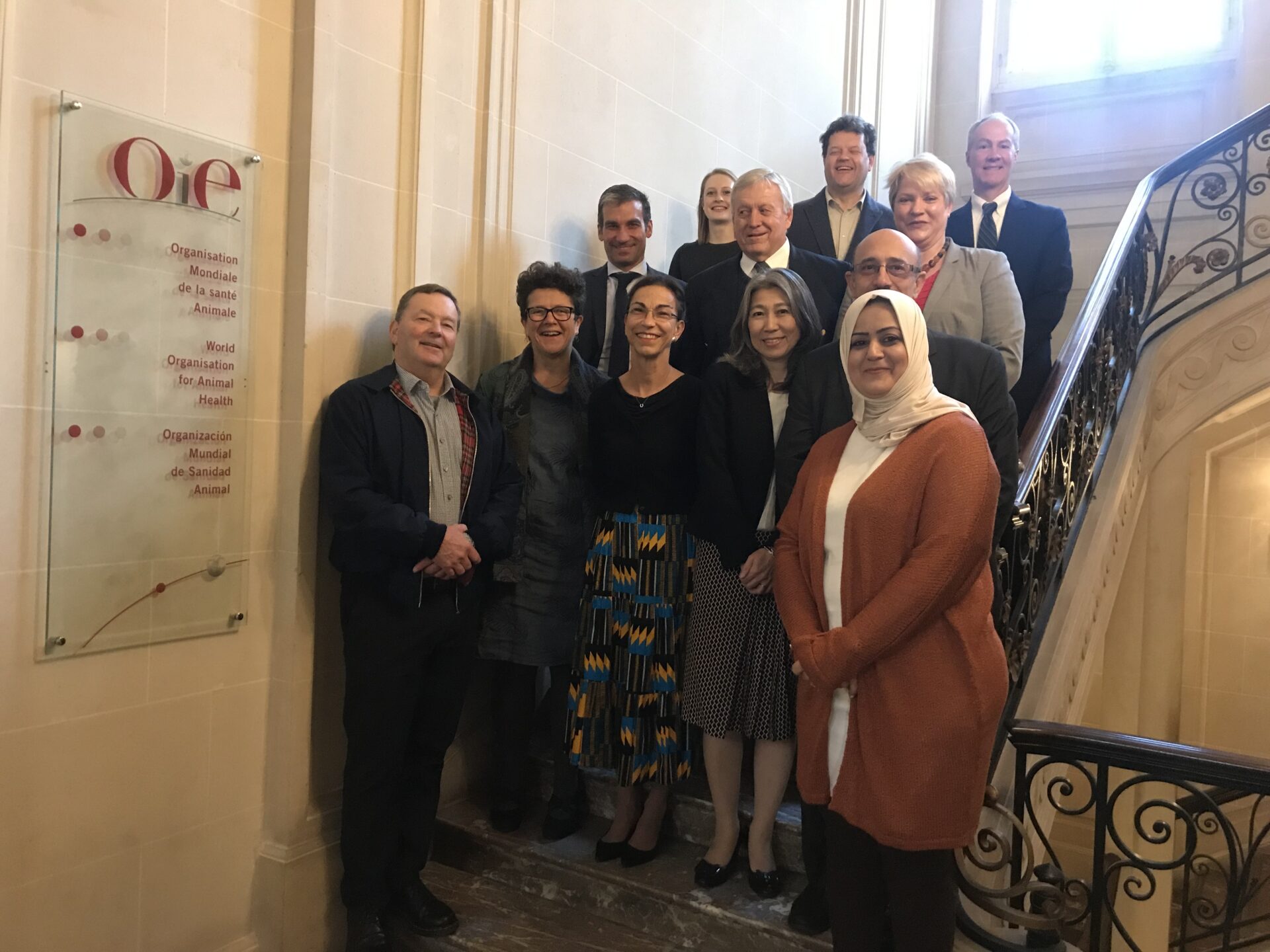The OIE Working Group on Antimicrobial Resistance:Providing guidance and establishing priorities during its first year
The OIE Working Group on Antimicrobial Resistance (Working Group on AMR) was established by the OIE Director General at the OIE’s 87th General Session in May 2019, following the adoption of Resolution No. 14 by the World Assembly of Delegates. The Working Group on AMR continues to build on the work accomplished by the previous ad hoc Group on Antimicrobial Resistance (AMR) which supported the organisation’s AMR work. The establishment of the Working Group strengthens the OIE’s capacity to respond to the global challenges of AMR.

© OIE/A.Ginzburg
Paris, 12 June 2020 – The Working Group on AMR is focused on assisting in the implementation of the OIE Strategy on AMR and the Prudent and Responsible Use of Antimicrobials, providing guidance, establishing priorities, addressing recommendations to maintain and develop the OIE International Standards related to AMR, assisting in the development of the OIE Antimicrobial Use database and supporting OIE Member Countries in developing communication activities and National Action Plans relating to AMR. The Working Group on AMR will also support the implementation of the recommendations of the 2nd OIE Global Conference on AMR and Prudent Use of Antimicrobials in Animals.
The Working Group on AMR convenes regularly through in-person meetings and virtual or online connections and is currently comprised of seven Members who are external experts and Chaired by Dr Tomoko Ishibashi, the Director of the International Standards Office, Food Safety Policy Division, Food Safety and Consumer Affairs Bureau within the Ministry of Agriculture, Forestry and Fisheries of the Government of Japan. The group’s meetings are attended by observers from the Food and Agricultural Organization of the United Nations and the World Health Organization and are supported by OIE staff.
The Working Group on AMR is working on the development of Species-specific reference documents, starting with poultry, to complement the current OIE List of Antimicrobial Agents of Veterinary Importance. The Species-specific reference document is being developed to function as a reference document to inform development of national treatment guidelines, advise on prevention and best practice management, risk management, and risk prioritization. The process will involve external experts, including private sector participants.
The Working Group on AMR is also regularly updated on the progress of the IT project for the OIE Global Database on Antimicrobial Agents Intended for Use in Animals to transition from data collection via Excel sheets into a database system. The group has agreed on the importance of its contribution to the OIE’s ongoing work towards further development of the OIE Database and a Technical Reference Group, including Working Group Members and other experts as appropriate, will assist the OIE regarding the Database development during its transition phase from a spreadsheet to an IT database. The OIE Database continues to receive voluntarily submitted data, with the 5th round of data collection receiving data from more than 150 countries, providing new quantitative data confirming continuing progress and improvement of data quality which will continue to inform the Working Group on AMR and Technical Reference Group.
Global AMR initiatives and issues continue to be of interest for the Working Group on AMR. The group is regularly informed on the Tripartite AMR activities, the AMR Multi-Partner Trust Fund’s global programs, and the Monitoring and Evaluation Framework of the Global Action Plan on AMR which allow the Group to be aware and establish priorities for OIEs work in the area.
Watch the presentation by Dr Tomoko Ishibashi, Chairperson of the OIE Working Group on Antimicrobial Resistance
Resources:
